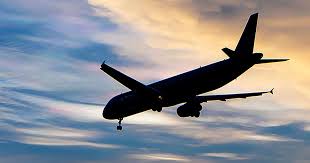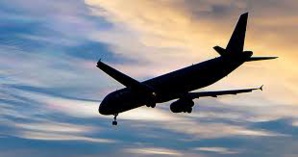According to four industry sources, Russian airlines, including state-controlled Aeroflot, are dismantling jetliners to get spare components that they can no longer buy outside due to Western sanctions.
The efforts are consistent with the Russian government's advice to airlines in June to use some aircraft for components in order to ensure that the remaining foreign-built planes can fly at least until 2025.
Sanctions imposed on Russia after it moved troops into Ukraine in late February have made it impossible for Russian airlines to procure replacement parts or undergo maintenance in the West.
Aviation experts have predicted that Russian airlines will begin removing equipment from their planes to keep them flying, but these are the first specific examples.
According to one person acquainted with the situation, at least one Russian-made Sukhoi Superjet 100 and an Airbus A350, both operated by Aeroflot, are currently grounded and being disassembled.
Due to the sensitivity of the situation, the source declined to be identified. According to the source, the Airbus A350 is nearly brand new.
The majority of Russia's planes are Western passenger jets.
According to the source, equipment was seized from a couple of Aeroflot's Boeing 737s and Airbus A320s since the company requires additional spare parts from those models for its other Boeing 737s and Airbus A320s.
Requests for response were not returned by the Russian Ministry of Transport or Aeroflot.
Sukhoi Superjets built in Russia are likewise significantly reliant on foreign components.
According to the initial report, an engine has already been removed from one Superjet to allow another Superjet to continue flying.
True, engines are routinely swapped between aircraft and are typically supplied under separate contracts, according to industry analysts. They are not considered to be a component of the main airframe.
According to a Western aviation industry insider, it is "just a matter of time" until Russian-based planes are cannibalised.
The technology in newer generations of jets, such as the A320neo, A350, and Boeing 737 MAX and 787, must be regularly upgraded.
According to Western sources, keeping contemporary jets in service within a year of the sanctions' implementation will be a "tough," even for Russia's highly developed and qualified engineering base.
Turning abandoned planes into "Christmas trees" is the practise of removing pieces to keep another plane flying. Although very unusual, it is frequently associated with financial troubles and has never occurred on the scale projected in Russia to address the impact of sanctions.
Jetliners may be made operable again if missing parts are replaced, however this will not necessarily restore the traceability required for jets to re-enter global markets.
Many parts have a finite lifespan that must be documented.
According to the most recent data, Aeroflot's fleet consists of about 80% Boeings and Airbuses, with 134 Boeings and 146 Airbuses, as well as nearly 80 Russia-made Sukhoi Superjet-100 jets.
According to Reuters calculations based on Flightradar24 data, 50 Aeroflot flights, or 15% of its fleet, have not taken off since late July, including jets trapped by sanctions.
According to Flightradar24 data, three of Aeroflot's seven Airbus A350s, including one that is presently being used for components, did not take off for roughly three months.
Due to Western sanctions, Russian carriers are flying fewer routes, which means there are underutilised jets that can be stripped, according to a second industry source.
"Western manufacturers understand that almost all Superjets are being operated in Russia," said Oleg Panteleev, head of the Aviaport aviation think-tank. "You can simply stop producing and shipping spare parts - and it will hurt."
(Source:www.reuters.com)
The efforts are consistent with the Russian government's advice to airlines in June to use some aircraft for components in order to ensure that the remaining foreign-built planes can fly at least until 2025.
Sanctions imposed on Russia after it moved troops into Ukraine in late February have made it impossible for Russian airlines to procure replacement parts or undergo maintenance in the West.
Aviation experts have predicted that Russian airlines will begin removing equipment from their planes to keep them flying, but these are the first specific examples.
According to one person acquainted with the situation, at least one Russian-made Sukhoi Superjet 100 and an Airbus A350, both operated by Aeroflot, are currently grounded and being disassembled.
Due to the sensitivity of the situation, the source declined to be identified. According to the source, the Airbus A350 is nearly brand new.
The majority of Russia's planes are Western passenger jets.
According to the source, equipment was seized from a couple of Aeroflot's Boeing 737s and Airbus A320s since the company requires additional spare parts from those models for its other Boeing 737s and Airbus A320s.
Requests for response were not returned by the Russian Ministry of Transport or Aeroflot.
Sukhoi Superjets built in Russia are likewise significantly reliant on foreign components.
According to the initial report, an engine has already been removed from one Superjet to allow another Superjet to continue flying.
True, engines are routinely swapped between aircraft and are typically supplied under separate contracts, according to industry analysts. They are not considered to be a component of the main airframe.
According to a Western aviation industry insider, it is "just a matter of time" until Russian-based planes are cannibalised.
The technology in newer generations of jets, such as the A320neo, A350, and Boeing 737 MAX and 787, must be regularly upgraded.
According to Western sources, keeping contemporary jets in service within a year of the sanctions' implementation will be a "tough," even for Russia's highly developed and qualified engineering base.
Turning abandoned planes into "Christmas trees" is the practise of removing pieces to keep another plane flying. Although very unusual, it is frequently associated with financial troubles and has never occurred on the scale projected in Russia to address the impact of sanctions.
Jetliners may be made operable again if missing parts are replaced, however this will not necessarily restore the traceability required for jets to re-enter global markets.
Many parts have a finite lifespan that must be documented.
According to the most recent data, Aeroflot's fleet consists of about 80% Boeings and Airbuses, with 134 Boeings and 146 Airbuses, as well as nearly 80 Russia-made Sukhoi Superjet-100 jets.
According to Reuters calculations based on Flightradar24 data, 50 Aeroflot flights, or 15% of its fleet, have not taken off since late July, including jets trapped by sanctions.
According to Flightradar24 data, three of Aeroflot's seven Airbus A350s, including one that is presently being used for components, did not take off for roughly three months.
Due to Western sanctions, Russian carriers are flying fewer routes, which means there are underutilised jets that can be stripped, according to a second industry source.
"Western manufacturers understand that almost all Superjets are being operated in Russia," said Oleg Panteleev, head of the Aviaport aviation think-tank. "You can simply stop producing and shipping spare parts - and it will hurt."
(Source:www.reuters.com)






